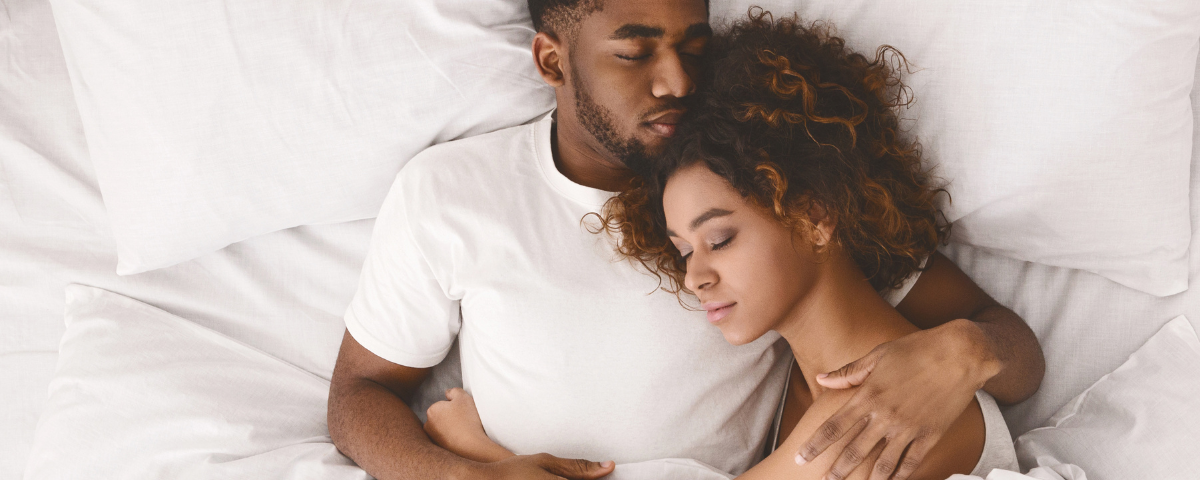Women are more likely to develop sleep problems. That’s because they go through different hormonal changes and health factors than men. There are also gender differences and social factors to be considered. Overall, the question remains: “Why do women need more sleep?” and do they actually sleep more than men?
Do women need more sleep? Yes.
Although the average adult need 7 or more hours of sleep per night regularly to achieve optimal health, women do need more sleep than men.
Besides that, throughout their lives, according to research, women generally sleep more than men, by 11 minutes more. But why do women need more sleep?
Why do women have more sleep problems and need more sleep?

Research on sleep disorders in women has left many questions unanswered, and the unique biology of women hasn’t been adequately considered. The Society for Women’s Health Research brought together experts to discuss this issue.
They found that sleep disorders in women might be influenced by biological factors, such as hormonal differences, and by gender differences in symptom reporting.
Another study stated that women also frequently report needing more sleep and feeling less refreshed after sleep than men. Hormonal changes during menstrual cycles, pregnancy, and menopause can disrupt sleep.
Additionally, researchers viewed that the disparity between men and women could be influenced by work, family roles, and how each gender spends their time, which varies throughout different life phases. Also, despite women often having slightly more sleep, men tend to have more leisure time across all life stages.
Besides all that, women are also more prone to developing disorders such as insomnia, anxiety, depression, and restless leg syndrome (RLS).
In summary, several factors contribute to women potentially requiring more sleep than men:
- Hormonal fluctuations
- Premenstrual syndrome (PMS)
- Menstrual cycle
- Societal pressures and roles
- Work
- Pregnancy
- Menopause
- Inadequate rest
- Higher predisposition to insomnia, anxiety, and depression.
Read More: Can I take Vitamin C at night to Sleep? Find Out!
The Biological Aspect of Sleep in Women

When diving into the reasons behind the different sleep patterns of women, biology plays a pivotal role. Influenced predominantly by hormones, various life stages considerably affect a woman’s sleep.
The Role of Hormones in Sleep
One cannot discuss sleep in women without highlighting the profound impact of hormones, particularly estrogen and progesterone. Both of these hormones fluctuate throughout a woman’s menstrual cycle and influence her sleep patterns.
- Estrogen and Sleep: Estrogen, often termed the “female” hormone, isn’t just about reproduction. Higher levels of estrogen, typically observed in the first half of the menstrual cycle, can promote better sleep by shortening the amount of time it takes to fall asleep and decreasing nocturnal awakenings.
- Progesterone and Sleep: On the other side of the cycle, after ovulation, progesterone levels rise. Progesterone has a sedative effect, which can lead to feelings of sleepiness. However, it can also increase the chances of disrupted sleep and episodes of sleep apnea.
Pregnancy and Sleep
Pregnancy is a beautiful, transformative phase, but it brings its own set of challenges when it comes to sleep. Of course, hormonal surges play a part, but we can’t ignore physical changes.
- Sleep Pattern Shifts: Especially during the first trimester, the surge in progesterone can make expectant mothers feel incredibly sleepy. During pregnancy, the expanding belly can make finding a comfortable sleeping position difficult. This can lead to more frequent awakenings during the night.
- Role of Hormones and Discomfort: Beyond progesterone, other hormones like relaxin can cause physical discomfort by relaxing pelvic joints and ligaments. Frequent bathroom trips from a growing uterus pressing on the bladder make it hard to sleep.
Menopause and Its Effect on Sleep
Menopause is another significant milestone in a woman’s life and marks the cessation of her menstrual cycles. However, the transitional period leading to menopause, called perimenopause, can be especially disruptive to sleep.
- Hormonal Changes: Declining estrogen levels can make one more susceptible to environmental stressors that disrupt sleep. Moreover, lower estrogen can cause hot flashes, which are sudden feelings of heat and can severely interrupt sleep.
- Mitigating Sleep Disturbances: While menopausal sleep disturbances can be challenging, they’re not insurmountable. Keeping the bedroom cool, using moisture-wicking beddings, and considering cognitive-behavioral therapy for insomnia (CBT-I) can effectively combat these sleep disturbances.
In conclusion, women need more sleep because of many different factors. But, of course, healthy sleep habits are always welcomed to optimize sleep quality. Make sure to go to bed early, stay hydrated, adopt sleep hygiene, and see a doctor if your sleep troubles are overbearing.
Read More: The Best Sleeping Positions for Sleep and Overall Health
After all, everyone deserves good sleep and to rest easily.
And, if interested, check out Sleepie, a personalized, natural, and continuous sleep treatment. Sleepie takes on technology and natural supplements to help people sleep even better.
Disclaimer: The information provided in this article is for informational purposes only and is not intended to substitute for professional medical advice, diagnosis, or treatment.


